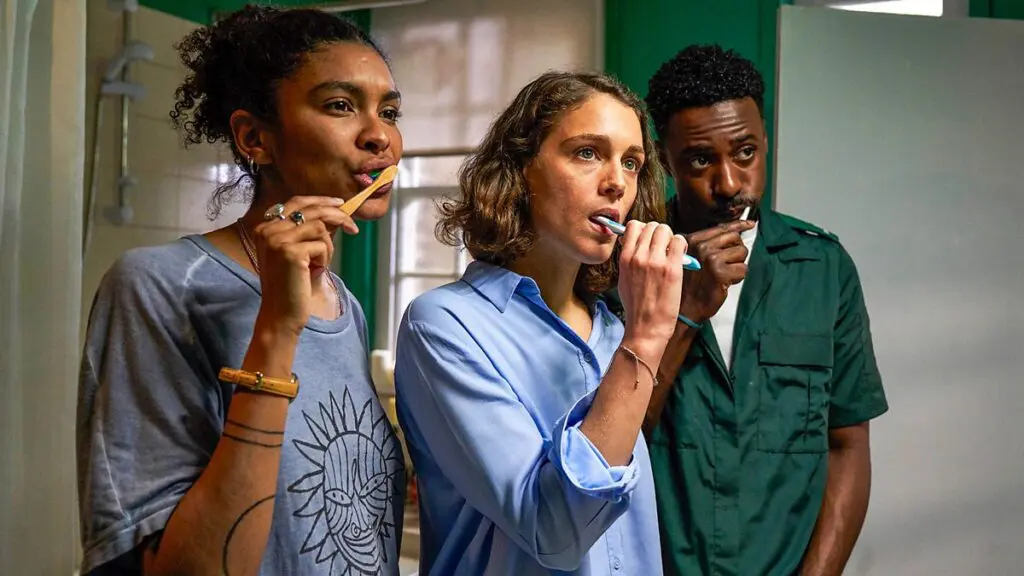Summary
A gently touching show about non-traditional human connection stands out as a low-key highlight of HBO Max’s mixed-bag launch.
This review of Trigonometry (HBO Max) is spoiler-free.
I suppose it’s quite fitting – not to mention amusing – that the low-key highlight of the HBO Max launch isn’t any of the platform’s original content but a polyamory drama lifted from BBC2. You have to take the highlights where you can get them, though, and in Trigonometry, writers and creators Duncan Macmillan and Effie Woods deliver an engaging and natural tale of an unconventional romance that develops in as relatable and “normal” a way as possible.
The small screen tends not to be kind to unconventional romances – Toni Collette and Steven Mackintosh tried to open up their stale relationship in the annoying BBC/Netflix dramedy Wanderlust, and a “throuple” was easily the most grating subplot in CBS’s time-hopping dark comedy Why Women Kill. And that’s just off the top of my head. But synchronized swimmer Ray (Ariane Labed), café owner Gemma (Thalissa Teixeira) and paramedic Kieran (Gary Carr), all immediately come across as real people whose separate lives begin to romantically intertwine when Ray moves in with the couple.

Across eight episodes, this entanglement is handled with an admirable degree of sensitivity and understanding – especially since it’s about how people navigate feelings that they don’t understand and latch onto the essential power of human connection that, as all right-minded people know, isn’t fussy enough to care about small matters of gender or convention. The show’s quietly observant style is a perfect fit for a relational puzzle in which the participants attempt to feel the outline of the pieces before they slot them into place.
The central performances from Teixeira, Carr, and Labed bolster this sense of gradual understanding and openness but are able to sharply veer into frustration and bafflement when the situation calls for it. Trigonometry is happy to be messy because all real relationships are, but it smartly elects not to pretend the mess has been made entirely because three’s a crowd. That’s a vital distinction and I’m glad the show makes it early and often; its approach is largely familiar, even, its obligatory highs and lows just shared by one more person than usual.
With its storytelling economy and rich sense of character, Trigonometry strikes as a fine love story. But its acute sense of characters bonding despite and indeed largely because of uncertainty gives it a charmingly hopeful slant, as though it’s suggesting how normalized these kinds of unconventional relationships could and should be. Love, after all, doesn’t discriminate, and nor should we, not least over a simple lack of understanding. Trigonometry makes its central three-way relationship a perfectly regular thing. Perhaps we should too.




